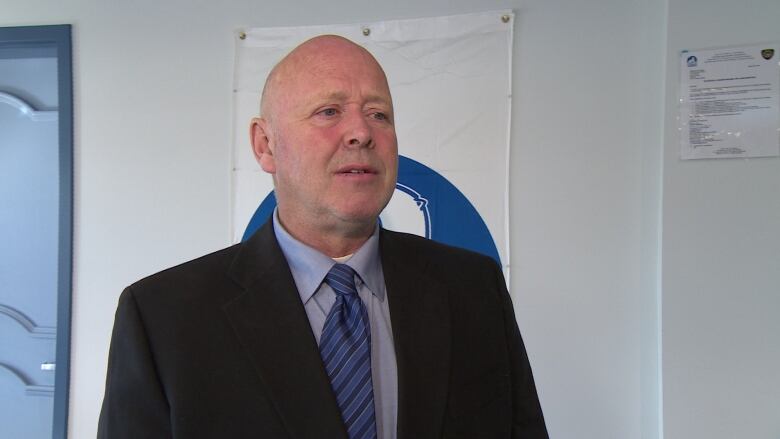Special inquest into suicide in Nunavut starts Monday
Two Nunavut families affected by suicide will take part in the coroner's inquest

Two Nunavut families affected by suicide will share their stories Monday afternoon, as part of a two-weekcoroner's inquest, set to beginin Iqaluit.
Nunavut's chief coroner, Padma Suramala, called the special inquest into the territory's high suicide rates back in January 2014.
The inquest will begin Monday morning, when the coroner chooses a six-member jury.
At a press conference Friday morning, N.W.T. coroner Garth Eggenberger, who's presiding over the case, said there will be a "great number of witnesses" from government and various partners for suicide prevention taking part in the inquest.
Nunavut has a very high suicide rate compared to the rest of Canada. Since its creation in 1999, 486people have died bysuicide in the territory. In 2013, a record 45 people in Nunavut took their own lives.
"There needs to be a change in that. Hopefully in this inquest we can start people changing their attitude toward suicide and preventing that," says Eggenberger.
"The end goal of this inquest is to bring forward recommendations to various organizations and to the public to consider ways of changing their approach to suicide."
'We want people to talk'
In June, the territory's health minister said the coroner was struggling to find families to take part in the inquest.
Suramala says it took nearly six months to get materials together and in the end only two of the five families she met withfelt comfortable to testify.
"Definitely it is a very sensitive and painful subject to share their memories of their loved ones," Suramala said Friday. "We have faced many challenges to motivate the families to come forward and testify in this inquest."
She says mental health supports have been put in place in Nunavut communities so families can prepare and counsellors will also be available after the inquest wraps.
For residents attending the inquest at the Nunavut Court of Justice in Iqaluit, there will be mental health workers on site and ready to help.
"We want people to talk," Eggenberger says.
"It's not only up to the government to do something. It's up to the public to do something. It's up to you and me to listen to somebody who's talking about suicide. To listen to them. To give them some other options. To think about another option other than death."
Eggenberger says the Nunavutgovernment is expected to table an evaluation of the territory's suicide prevention strategy. He says it's important for residents to know what the government is doing and whether their efforts are making a difference.
"And this is really what we're asking. Why haven't things been changing?"
"This is a call for them to come forward," Eggenberger says. "Let's listen."












_(720p).jpg)


 OFFICIAL HD MUSIC VIDEO.jpg)
.jpg)



























































































